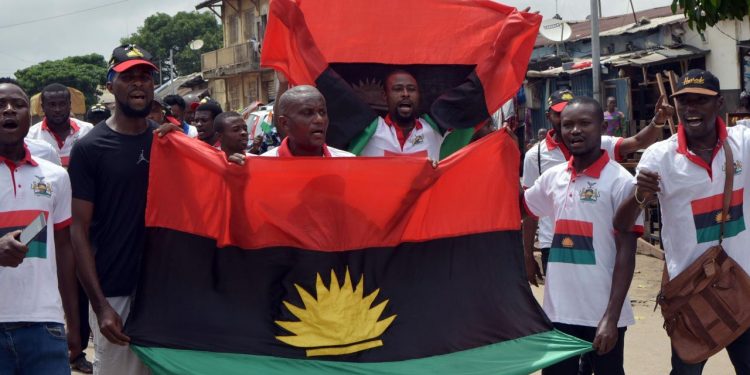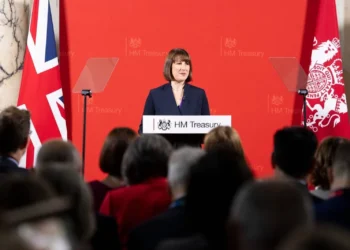The May 30 sit-at-home directive issued by the Movement for the Actualization of the Sovereign State of Biafra (MASSOB) has again stirred attention and tension across Nigeria’s Southeast. Marking the 58th anniversary of the 1967 declaration of Biafra by the late Lt. Col. Chukwuemeka Odumegwu-Ojukwu, the order is both a tribute to history and a political act that reveals ongoing grievances. However, it also imposes undeniable economic and social costs on the region.
The latest sit-at-home call, issued by MASSOB leader Uchenna Madu, through National Director of Information Samuel Edeson, emphasizes voluntary compliance. According to the group, this year’s commemoration on May 30, 2025, will involve a total shutdown of commercial and public activities between 6 a.m. and 4 p.m. No protests, marches, or public gatherings are planned, underscoring MASSOB’s stated commitment to non-violence.
For background on MASSOB, the group emerged in 1999 under Chief Ralph Uwazuruike to revive the Biafran secessionist agenda through peaceful means. Yet, decades after the end of the Nigerian Civil War in 1970, the Southeast still bears scars of marginalization, which groups like MASSOB and the Indigenous People of Biafra (IPOB) claim to address.
Sit-at-Home: A Tool of Resistance or Economic Sabotage?
What began as symbolic resistance has, over time, morphed into a disruptive routine for many Igbo communities. The sit-at-home policy, which initially served to honor fallen Biafrans and assert ethnic solidarity, has become a regular source of fear, economic loss, and, in some cases, violence—particularly under IPOB’s more militant enforcement.
Markets, schools, and businesses suffer heavily during these closures. Economic experts estimate that Anambra State alone loses billions of naira during each sit-at-home episode. The total cost across the Southeast is harder to quantify but undoubtedly substantial.
Despite MASSOB’s assurance that this year’s directive is non-compulsory, many residents often feel coerced due to past experiences where noncompliance led to violent reprisals. The fear has not dissipated, especially given IPOB’s past actions and threats. Although IPOB has distanced itself from the 2025 order, the legacy of fear continues.
Public Sentiment: Between Respect and Resentment
The general populace in the Southeast remains divided. Some view the sit-at-home as a solemn day of remembrance, a way to honor the memory of millions who died in the civil war. Others see it as counterproductive, especially when it disrupts education, business, and essential services.
“We understand the sentiment, but this is not how to achieve development or recognition,” said a trader in Aba, who chose to remain anonymous for safety reasons. “How can we grow if we keep shutting down?”
This sentiment echoes broader frustration, particularly among the youth and private sector, who argue that the Igbo cause is being undermined by tactics that ultimately hurt the region’s economy and reputation.
Government and Security Response
As in previous years, security agencies are expected to deploy heavily across Southeast cities like Enugu, Onitsha, Aba, and Owerri. The Nigerian Army and the Department of State Services (DSS) have consistently increased presence during Biafran remembrance periods, citing the need to maintain order and pre-empt violence.
However, human rights advocates warn that this often leads to intimidation and clashes with civilians. Groups like Amnesty International have documented cases of excessive force in past sit-at-home exercises, fuelling further resentment and reinforcing secessionist narratives.
The Evolving Biafra Struggle
From MASSOB’s peaceful advocacy to IPOB’s sometimes confrontational stance, the Biafra agitation has evolved over time. What remains consistent is the call for self-determination, rooted in perceived marginalization, lack of federal appointments, underdevelopment, and limited political influence at the national level.
Efforts to proscribe IPOB and label it a terrorist organization have not stopped its activities or reduced its popularity in certain quarters. Even with its leader, Nnamdi Kanu, still facing legal battles, the group’s influence continues to shape discourse in the region.
Meanwhile, MASSOB’s announcement appears to be a strategic move to reclaim the narrative and shift focus back to peaceful remembrance. Whether this will succeed in changing the tone of the Biafran struggle remains to be seen.
Final Thoughts: A Region at Crossroads
The Southeast stands at a critical juncture. The continued observance of sit-at-home orders, whether voluntary or enforced, is a symptom of deeper issues Nigeria has yet to address. For many Igbos, the memory of Biafra is not merely historical—it is a daily reminder of unhealed wounds and unmet aspirations.
However, progress will depend on whether the region can strike a balance between remembrance and recovery. While honouring the past is important, building a viable economic and political future is even more critical.
As the region marks another Biafran anniversary, perhaps the most urgent question remains: can the Igbo people find a new path forward without further isolating themselves from the nation they wish to transform?












